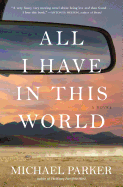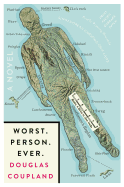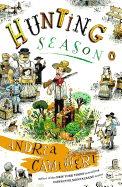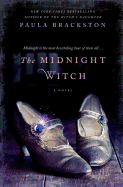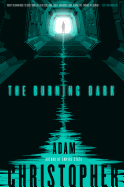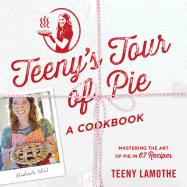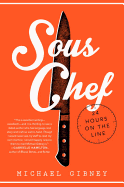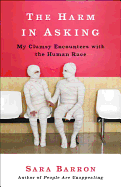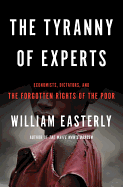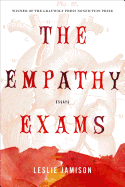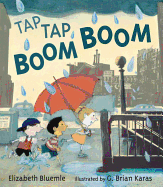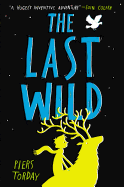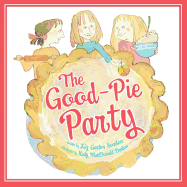 |
| photo: Thomas Dozol |
Canadian novelist Douglas Coupland is known for his blisteringly funny critiques of mass culture, bringing such terms as Generation X and McJob into the mainstream. He's written 13 novels, two short story collections, seven nonfiction titles and a myriad of dramatic works and visual art pieces. In addition, Coupland was longlisted twice for the Scotiabank Giller Prize (2006 and 2010), nominated for the Hubert Evans Nonfiction Prize in 2011 and was a finalist for the Writers' Trust Fiction Prize in 2005. Worst. Person. Ever marks his first full-length novel in four years. Our review is below.
You're overseeing the "Golden Tree" sculpture--a mirror-image representation of the famous Hollow Tree in Vancouver's Stanley Park. How is that going?
That's the least of things, art-wise. I have a 10,000-sq.-ft. museum retrospective that opens May 31 in Vancouver and then travels around the world. Many people don't know that I've had a parallel art existence starting about 2000.
How has this parallel career helped in your writing? Worst. Person. Ever. is your 14th novel, plus all the short stories and the nonfiction pieces you've written. That's quite an accomplishment. How do you balance it all out?
There are two ways of looking at it. One, books take place in time, while art takes place in space, and the space part of my brain was saying, "Stop ignoring me!" Two, people in the book world are largely not visual thinkers, and they know it. I used to get interviewers saying, "Gee, Doug--your books are really... [freighted pause] visual, aren't they?" I was never sure if it was a putdown or a put up, but now I realize what they were saying is, "Doug, I'm not a visual thinker, so your writing doesn't make sense to me." I realized I had to start hanging out a lot more with visual thinkers. As an addendum, in my two novels set in tech culture, I did things like put in 17 pages of pi, or 10,000 random numbers. Most of the guys (not women) who interviewed me for those books said they went into writing because they never wanted to see a number ever again.
What other artistic endeavors are you undertaking at this time?
The show is good enough for now.
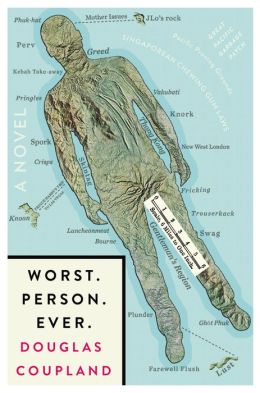 How were you inspired to write Worst. Person. Ever.? Your main character and the gist of the story, though hip and utterly funny as a critique of North American mass culture, come across as misogynistic.
How were you inspired to write Worst. Person. Ever.? Your main character and the gist of the story, though hip and utterly funny as a critique of North American mass culture, come across as misogynistic.
As well as everything else. But I'm glad you found it funny. People get into priggish moods and condemn it, when all the book aims to do is make you look at the dark side of life and make your stomach sore from laughing about it. I mean, you don't go into a cocktail lounge and order apple juice. You'll just look stupid.
This brings us to Raymond Gunt himself. You have become a master at creating offbeat and sometimes reprehensible characters like Gloria and Steve in The Gum Thief and the wildly dysfunctional videogame family of JPod. But Raymond is something else; he's despicable yet readers are drawn to him and his lascivious exploits.
Raymond inhabits a nook in my brain along with all my other characters. He can come out when I summon him, but, like most characters, once they've had their say, they go into Salingerian-like retreat. Everyone keeps staring at me now, waiting for me to channel Raymond in real life, but it doesn't work that way. It'd be like staring at Agatha Christie waiting for her to murder the vicar. Where do characters come from--is there a science to this? I have no idea, but I'm glad the brain can do it.
I find it ironic that you write so convincingly about anti-heroes, especially slackers, when you yourself are their antithesis. How much of this is observation and how much of it real-life experience?
My life is fantastically low energy. The one thing I do that most people don't is I refuse to wake up to an alarm clock. I allow nothing to force me to wake up to anyone else's schedule. It's not easy to do, but it works.
How much of an influence did Ricky Gervais's David Brent have on Raymond Gunt?
Raymond could so easily be Ricky Gervais! But also maybe more like Richard E. Grant (Withnail). I love Ricky Gervais's smarminess. He's a comic genius. I don't know if Americans quite get him.
You've done a marvelous job in bringing the trials and tribulations of Generation X to the world.
Good Lord, that was 22 years ago!
With this novel you're attempting to reinvigorate biji, a genre in classical Chinese literature that equates to "notebook," or random musings of an author. Was it difficult to fit Raymond Gunt's misdeeds within this genre?
McSweeney's e-mailed and asked me to do a modern-day biji, and a 5,000-word piece blurted out from my subconscious. This became the seed of the novel. I was very lucky they called. I joke that I felt like Cher getting an Oscar when they called.
Of the styles you've employed in your previous work, from visual narrative and epistolary to biji, which have you found most enjoyable? Which has been the most difficult?
The Gum Thief was epistolary. I loved writing it. Life After God was the hardest because everything was tiny and crystalline and I was going through so much pain that year.
I can see Raymond becoming a TV staple like Hank Moody in Californication. Do you have any plans to bring Ray to the small screen?
I've never seen Californication but have always heard good things about it. Is he a swearer? I don't like it when TV characters swear with an excuse like Tourette's, like Deb in Dexter. It makes them cute and cuddly and that's the opposite of the effect swearing really needs to have. Swearing is meant to offend, and in analyzing why it offends you, you learn more about yourself than you might like to know. We dislike in others those traits in them that remind us of ourselves.
Your ear for dialogue is so good. What you have on your reading shelf? Which authors do you enjoy the most and why?
An author I love is John O'Hara... U.S., died in 1970. Sixty-two books, all dialogue. I think he's been forgotten by time, but for dialogue lovers, he's a goldmine of inspiration. --Nancy Powell, freelance writer and technical consultant
Douglas Coupland: The King of Dark Comedy
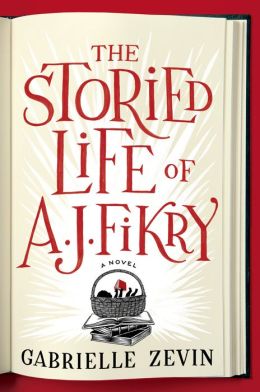




 How were you inspired to write Worst. Person. Ever.? Your main character and the gist of the story, though hip and utterly funny as a critique of North American mass culture, come across as misogynistic.
How were you inspired to write Worst. Person. Ever.? Your main character and the gist of the story, though hip and utterly funny as a critique of North American mass culture, come across as misogynistic.